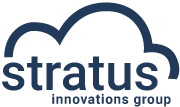Is Virtualization, a Private Cloud, or a Public Cloud Solution Best for Your Business?

Virtualization and cloud computing are terms that even some IT professionals use interchangeably. However, cloud computing and virtualization are technically distinct, powerful technologies that can both make your IT systems more secure, agile, and cost-efficient.
To learn more about the relationship between virtualization and cloud computing and find out which solutions are right for your business, keep reading.
What Is Virtualization?
Virtualization occurs when you use software to simulate functionality that you would normally need additional hardware to achieve. This fundamental process yields a variety of applications, including:
- Desktop virtualization: Rather than storing an individual user’s desktop on a device, it gets stored virtually in the cloud. This lets the user access their desktop and applications from any device or location.
- Network virtualization: This process splits network bandwidth into channels that are assigned to servers and devices. You can decide which sub-networks can communicate with each other, enhancing both security and your network’s reliability.
- Server virtualization: Software divides a single server into isolated virtual machines or containers. Each virtual machine operates as a separate device and runs applications independently of the other virtual machines on the server.
- Software virtualization: This process allows a computer to run one or more virtual environments, which can allow for multiple co-existing operating systems on a single device.
While virtualization has existed for decades, its mainstream business applications have exploded in the last few years.
Virtualization allows companies to ditch expensive servers, reallocate resources, and offer their employees increased flexibility. In a recent survey conducted by Spiceworks, 62 percent of IT professionals said virtualization was very important for current and future business practices. And while you might expect that only Fortune 500 firms could afford to implement virtualization, businesses of all sizes are already benefiting from virtual solutions.
RELATED ARTICLE: 5 Cost-Saving Benefits of Implementing a Virtual Data Center (VDC)
What Are Cloud Solutions?
Cloud solutions involve a lot more than creating a series of virtual machines or containers. While virtualization manipulates hardware, cloud solutions deliver shared data, applications, and resources from those virtual machines over a network. According to the National Institute of Standards and Technology (NIST), cloud solutions have five essential characteristics:
- On-demand and self-service: Interaction with service providers is limited, and users can control many functions with the click of a button
- Broad network access: Capabilities and functionality are available on the network and can be accessed on multiple devices and at multiple locations
- Resource pooling: Multiple tenants or users pool cloud resources, which are dynamically assigned based on demand
- Rapid elasticity: Resources and capabilities are constantly being added and released based on demand. Contrast this with virtualization, where you need to purchase another physical server and associated software if you need additional capacity
- Measured service: Metering capabilities help the cloud system automatically control and optimize resource use
Cloud computing covers a wide variety of services, including software as a service (SaaS), platform as a service (PaaS), and infrastructure as a service (IaaS).
The Three Categories of Cloud Solutions
Cloud solutions fall into three primary categories:
Public cloud
Public clouds are the most common form of cloud solution. With a public cloud, your company uses a third-party cloud solution that stores your data and applications. Your company shares the cloud with other tenants that use the solution.
Compared to other cloud solutions, public clouds typically have the lowest cost, don’t require maintenance, and are highly scalable and reliable.
Private cloud
Your company fully controls the private cloud ecosystem, and your services and infrastructure reside on a private network with dedicated servers and other hardware. You might choose a private cloud if you’re concerned about security or need greater IT flexibility.
Hybrid cloud
A hybrid cloud allows a business to maintain its most sensitive data and applications on a private cloud while other information remains on a public cloud.
Which cloud solution is right for your business depends on your unique needs. For example, suppose you’re a government contractor, which means that security is essential. In that case, you might prefer a private cloud. However, as your business grows and your staff’s computing needs expand, you might move to a hybrid cloud solution where your secure functions can “cloud-burst” into the public cloud during periods of heavy usage.
Stratus Innovations’ Virtual Datacenter Solution Offers Businesses the Best of All Worlds
Our Virtual Datacenter solution safely and efficiently connects your business’ network to the Microsoft cloud. Using our Virtual Datacenter, you can quickly implement and scale public and hybrid cloud solutions that provide high availability and disaster response services to all your locations and users. Our solution can also reduce or eliminate your need to purchase and maintain hardware.
RELATED ARTICLE: What Is a Virtual Datacenter, and How Can It Drive Business Value?
Stratus Innovations’ Virtual Datacenter solution uses the robust Azure Virtual Network. With our help, your business can build an infrastructure that’s secure, controlled, and reliable.
Stratus Innovations: Customized Cloud and Industrial IoT Solutions
Stratus Innovations develops and implements practical, innovative cloud computing and IoT solutions for clients across a wide variety of industries. If you’re interested in learning more about our customized solutions and how they could benefit your operations, we’d love to hear from you. Simply complete our easy online contact form or call us at 844-561-6721.
References
Mell, P., Grance, T. (2011, September). The NIST definition of cloud computing: Recommendations of the National Institute of Standards and Technology. Gaithersburg, MD: National Institute of Standards and Technology. Retrieved from https://nvlpubs.nist.gov/nistpubs/legacy/sp/nistspecialpublication800-145.pdf
Spiceworks. (2017) The 2017 state of IT: Flat budgets and global instability shake up the IT game. Austin, TX: Author. Retrieved from https://www.spiceworks.com/marketing/resources/reports/2017-state-of-it/
